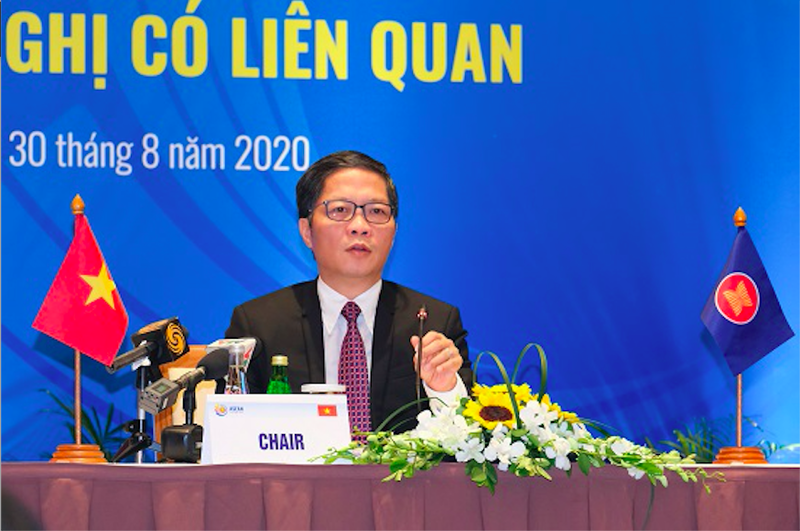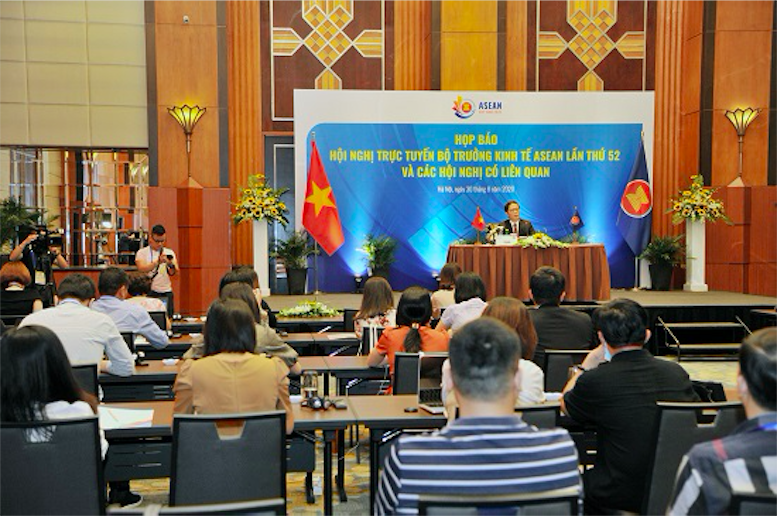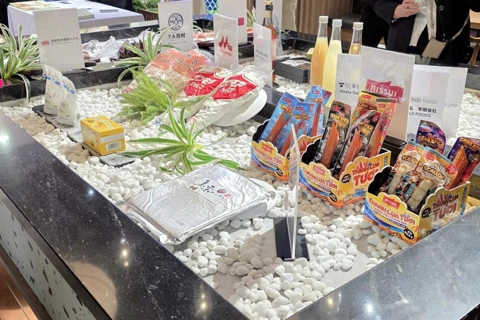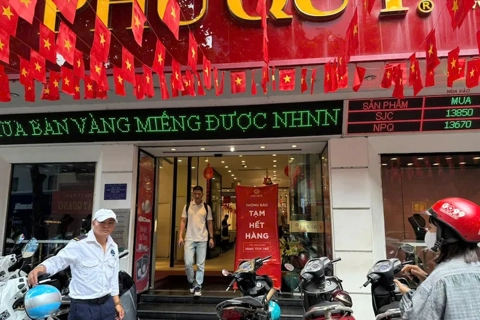ASEAN members agree to measures to maintain supply chains amid Covid-19
The disruption of supply chains as a result of the Covid-19 pandemic is a major concern, as all ASEAN members are export-oriented, said Vietnam’s Trade Minister Tran Tuan Anh.
ASEAN members have agreed to measures to boost economic growth and maintain existing supply chains amid the Covid-19 pandemic, according to Vietnamese Minister of Industry and Trade Tran Tuan Anh.
| Minister of Industry and Trade Tran Tuan Anh at the press conference. Photo: MoIT. |
These measures would enhance economic resilience of each country and help them better adapt to the new situation, Mr. Anh said at a press conference on August 30 following the conclusion of the 52nd ASEAN Economic Ministers’ Meeting (AEM-52), which was held from August 22 to 29.
Minister Anh added the ASEAN as a whole is facing numerous challenges as the Covid-19 is wreaking havoc globally, with the foremost being the disruption of supply chains. This is particularly a significant issue, as members of the bloc are all export-oriented.
Additionally, Covid-19 preventive measures have also partially affected the flow of goods, including basic necessities.
Covid-19 also causes negative impacts on human resources and subsequent operations of businesses in the Southeast Asian region.
The last challenge that Mr. Anh referred to was the struggle that ASEAN’s major export markets are waging against the Covid-19 impacts.
| Overview of the press conference. Photo: MoIT. |
Meanwhile, at the AEM-52, ministers also agreed to amend the ASEAN Trade in Goods Agreement (ATIGA) and implement the ASEAN – Wide Self Certification (AWSC) scheme, starting from September 20, 2020.
This showcased strong efforts from Vietnam and other ASEAN countries in promoting trade and economic activities within the bloc, noted Mr. Anh.
Notably, two out of 13 Priority Economic Deliverables (PEDs) under Vietnam’s 2020 ASEAN Chairmanship, namely the ASEAN Digital Integration Index and terms of reference (TOR) for linkages of innovation hubs in ASEAN, were well-received among ministers.
Mr. Anh suggested these two PEDs are expected to support ASEAN businesses during the digitization process and competitiveness enhancement.
The remaining 11 PEDs are scheduled to complete by the end of this year. Mr. Anh stated.
At this AEM-52, ASEAN economic ministers have also approved the ASEAN+3 action plan to mitigate Covid-19 economic impacts, and initiatives from economic ministers of the ASEAN and South Korea in economic cooperation to overcome Covid-19.
Regarding the Regional Comprehensive Economic Partnership (RCEP), Mr. Anh said all ministers discussed their visions to ensure the conclusion of the negotiation process and the signing of the deal by the end of this year. They also expressed their support for India to remain as part of the RCEP.














